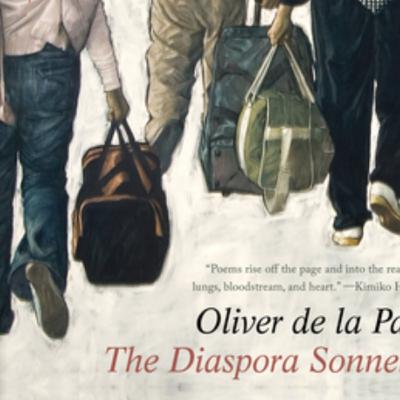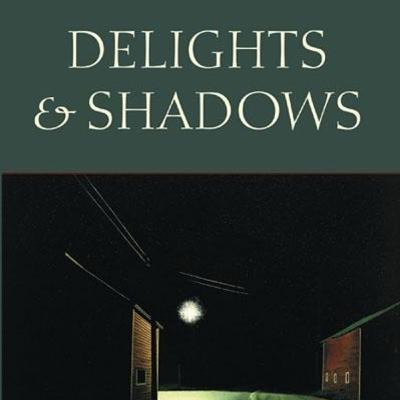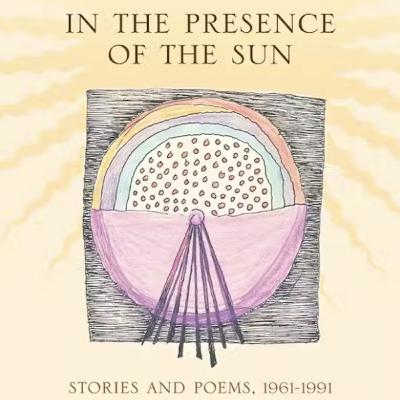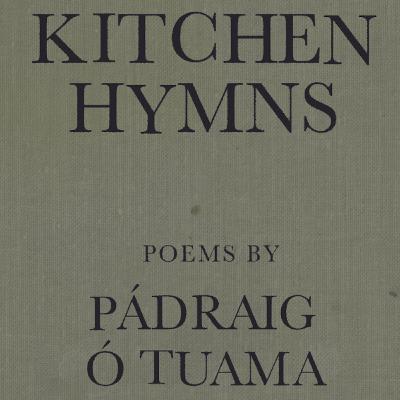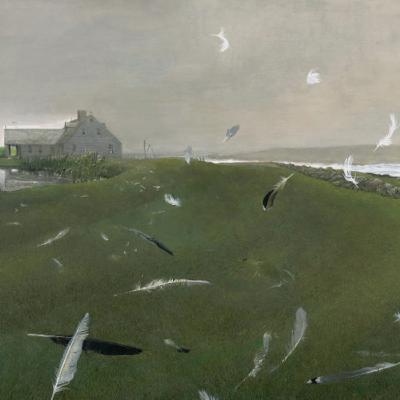Discover Poetry For All
Poetry For All

Poetry For All
Author: Joanne Diaz and Abram Van Engen
Subscribed: 169Played: 1,980Subscribe
Share
© 2025 Poetry For All
Description
This podcast is for those who already love poetry and for those who know very little about it. In this podcast, we read a poem, discuss it, see what makes it tick, learn how it works, grow from it, and then read it one more time.
Introducing our brand new Poetry For All website: https://poetryforallpod.com! Please visit the new website to learn more about our guests, search for thematic episodes (ranging from Black History Month to the season of autumn), and subscribe to our newsletter.
Introducing our brand new Poetry For All website: https://poetryforallpod.com! Please visit the new website to learn more about our guests, search for thematic episodes (ranging from Black History Month to the season of autumn), and subscribe to our newsletter.
105 Episodes
Reverse
This episode opens "Someday I'll Love" poems through the vivid imagery of a young poet's connection with their grandmother, remembering in love as memory begins to slip.
Emerald ᏃᏈᏏ GoingSnake is an Indigenous poet from the United Keetoowah Band of Cherokee Indians and the Muscogee (Creek) Nation in Oklahoma. Winner of the 2024 Maureen Egen Writers Exchange Award for poetry and the recipient of the 2023 Indigenous Nations Poets fellowship, they live in St. Louis.
Portrait by Erin Lewis Photography
The poem was featured on Poem-a-Day and can be found at the Academy of American Poets.
See here for the poem online. (https://poets.org/poem/someday-ill-love)
Someday I’ll Love—
Emerald ᏃᏈᏏ GoingSnake
—after Frank O’Hara
like I dreamt of the lamb—slaughtered,
forgotten,
lying on porcelain tile, on crimson-filled grout—
and woke up thinking of my grandmother,
of her Betty Boop hands that held
marbled stone, held dough-balled flour,
held the first strands of my hair floating atop the river—
like winter apples, the ones that hang outside
my living room window and survive first snowfall
to feed the neighborhood crows,
how they fall
beneath my boots, staining my rubber
soles with epigraphs of rot, epigraphs
of fors, of dears, of holding on till frost’s end.
Someday I will see long-forgotten fingerprints
on the inside of my eyelids as I go to sleep,
as I close my eyes for silence on a Wednesday,
mourning—seeking—creases and smile lines,
porch lights and swing sets,
summer nights of lightning bugs and Johnny Cash.
I think it will be a Tuesday, or maybe someday
is yesterday, is two months from now, is going
to be a day when I forget what I’m supposed
to be remembering.
For now, I will paint my nails cradle, adorn
my skin in cloth that doesn’t choke,
tell my bones that they are each
a lamb
remembered.
Copyright © 2024 by Emerald ᏃᏈᏏ GoingSnake. Originally published in Poem-a-Day on November 7, 2024, by the Academy of American Poets. Used by permission.
This episode takes us to a graveyard for Halloween and explores one of the most canonical poems in the English language, poised between two huge eras of poetry as it meditates on how "the paths of glory lead but to the grave."
The whole poem can be found below.
The image is of Thomas Gray's monument in Stoke Poges, inscribed with his elegy. Photo by UKgeofan at English Wikipedia, CC BY-SA 3.0, https://commons.wikimedia.org/w/index.php?curid=10552507
For more on Thomas Gray, see The Poetry Foundation (https://www.poetryfoundation.org/poets/thomas-gray).
Elegy Written in a Country Churchyard
By Thomas Gray
The curfew tolls the knell of parting day,
The lowing herd wind slowly o'er the lea,
The plowman homeward plods his weary way,
And leaves the world to darkness and to me.
Now fades the glimm'ring landscape on the sight,
And all the air a solemn stillness holds,
Save where the beetle wheels his droning flight,
And drowsy tinklings lull the distant folds;
Save that from yonder ivy-mantled tow'r
The moping owl does to the moon complain
Of such, as wand'ring near her secret bow'r,
Molest her ancient solitary reign.
Beneath those rugged elms, that yew-tree's shade,
Where heaves the turf in many a mould'ring heap,
Each in his narrow cell for ever laid,
The rude forefathers of the hamlet sleep.
The breezy call of incense-breathing Morn,
The swallow twitt'ring from the straw-built shed,
The cock's shrill clarion, or the echoing horn,
No more shall rouse them from their lowly bed.
For them no more the blazing hearth shall burn,
Or busy housewife ply her evening care:
No children run to lisp their sire's return,
Or climb his knees the envied kiss to share.
Oft did the harvest to their sickle yield,
Their furrow oft the stubborn glebe has broke;
How jocund did they drive their team afield!
How bow'd the woods beneath their sturdy stroke!
Let not Ambition mock their useful toil,
Their homely joys, and destiny obscure;
Nor Grandeur hear with a disdainful smile
The short and simple annals of the poor.
The boast of heraldry, the pomp of pow'r,
And all that beauty, all that wealth e'er gave,
Awaits alike th' inevitable hour.
The paths of glory lead but to the grave.
Nor you, ye proud, impute to these the fault,
If Mem'ry o'er their tomb no trophies raise,
Where thro' the long-drawn aisle and fretted vault
The pealing anthem swells the note of praise.
Can storied urn or animated bust
Back to its mansion call the fleeting breath?
Can Honour's voice provoke the silent dust,
Or Flatt'ry soothe the dull cold ear of Death?
Perhaps in this neglected spot is laid
Some heart once pregnant with celestial fire;
Hands, that the rod of empire might have sway'd,
Or wak'd to ecstasy the living lyre.
But Knowledge to their eyes her ample page
Rich with the spoils of time did ne'er unroll;
Chill Penury repress'd their noble rage,
And froze the genial current of the soul.
Full many a gem of purest ray serene,
The dark unfathom'd caves of ocean bear:
Full many a flow'r is born to blush unseen,
And waste its sweetness on the desert air.
Some village-Hampden, that with dauntless breast
The little tyrant of his fields withstood;
Some mute inglorious Milton here may rest,
Some Cromwell guiltless of his country's blood.
Th' applause of list'ning senates to command,
The threats of pain and ruin to despise,
To scatter plenty o'er a smiling land,
And read their hist'ry in a nation's eyes,
Their lot forbade: nor circumscrib'd alone
Their growing virtues, but their crimes confin'd;
Forbade to wade through slaughter to a throne,
And shut the gates of mercy on mankind,
The struggling pangs of conscious truth to hide,
To quench the blushes of ingenuous shame,
Or heap the shrine of Luxury and Pride
With incense kindled at the Muse's flame.
Far from the madding crowd's ignoble strife,
Their sober wishes never learn'd to stray;
Along the cool sequester'd vale of life
They kept the noiseless tenor of their way.
Yet ev'n these bones from insult to protect,
Some frail memorial still erected nigh,
With uncouth rhymes and shapeless sculpture deck'd,
Implores the passing tribute of a sigh.
Their name, their years, spelt by th' unletter'd muse,
The place of fame and elegy supply:
And many a holy text around she strews,
That teach the rustic moralist to die.
For who to dumb Forgetfulness a prey,
This pleasing anxious being e'er resign'd,
Left the warm precincts of the cheerful day,
Nor cast one longing, ling'ring look behind?
On some fond breast the parting soul relies,
Some pious drops the closing eye requires;
Ev'n from the tomb the voice of Nature cries,
Ev'n in our ashes live their wonted fires.
For thee, who mindful of th' unhonour'd Dead
Dost in these lines their artless tale relate;
If chance, by lonely contemplation led,
Some kindred spirit shall inquire thy fate,
Haply some hoary-headed swain may say,
"Oft have we seen him at the peep of dawn
Brushing with hasty steps the dews away
To meet the sun upon the upland lawn.
"There at the foot of yonder nodding beech
That wreathes its old fantastic roots so high,
His listless length at noontide would he stretch,
And pore upon the brook that babbles by.
"Hard by yon wood, now smiling as in scorn,
Mutt'ring his wayward fancies he would rove,
Now drooping, woeful wan, like one forlorn,
Or craz'd with care, or cross'd in hopeless love.
"One morn I miss'd him on the custom'd hill,
Along the heath and near his fav'rite tree;
Another came; nor yet beside the rill,
Nor up the lawn, nor at the wood was he;
"The next with dirges due in sad array
Slow thro' the church-way path we saw him borne.
Approach and read (for thou canst read) the lay,
Grav'd on the stone beneath yon aged thorn."
THE EPITAPH
Here rests his head upon the lap of Earth
A youth to Fortune and to Fame unknown.
Fair Science frown'd not on his humble birth,
And Melancholy mark'd him for her own.
Large was his bounty, and his soul sincere,
Heav'n did a recompense as largely send:
He gave to Mis'ry all he had, a tear,
He gain'd from Heav'n ('twas all he wish'd) a friend.
No farther seek his merits to disclose,
Or draw his frailties from their dread abode,
(There they alike in trembling hope repose)
The bosom of his Father and his God.
In this third episode in our series on the pantoum, we read and discuss Oliver de la Paz's "Pantoum Beginning and Ending with Thorns," a poem that draws its inspiration from a visual art object as well as the story of migration that shapes the poetic speaker's lived experience.
To learn more about Oliver de la Paz, visit his website (https://www.oliverdelapaz.com/).
If you love this poem as much as we do, please purchase a copy of The Diaspora Sonnets (https://wwnorton.com/books/9781324092988) (Liveright Publishing Corporation, 2023), which was long-listed for the 2023 National Book Award in Poetry and a finalist for the 2024 Paterson Poetry Prize. Thanks to Liveright and W. W. Norton for granting us permission to read this poem.
In this episode, we continue our three-part series on the pantoum, this time focusing on Arthur Sze's "Papyrus Pantoum." We consider the poem's collage-like qualities, Sze's ability to juxtapose abundance and scarcity, and the way he attends to both beauty and danger in the natural world.
Arthur Sze is the 25th Poet Laureate of the United States. To learn more about Arthur Sze and his amazing work, click here (https://www.poetryfoundation.org/poets/arthur-sze).
Thanks to Copper Canyon Press for granting us permission to read this poem. You can find "Papyrus Pantoum" in Into the Hush (https://citylights.com/hardcover-poetry/into-the-hush/) (Copper Canyon Press, 2025).
This episode begins a three-part series on the pantoum and looks at how the repetitions work especially well for a poem that dwells incessantly in memories of the past, trying to recover, trying to move forward.
For the text of the poem, see The Poetry Foundation:
https://www.poetryfoundation.org/poems/58080/pantoum-of-the-great-depression
For more on Donald Justice, see The Poetry Foundation:
https://www.poetryfoundation.org/poets/donald-justice
Copyright Credit: Donald Justice, "Pantoum of the Great Depression" from Collected Poems. Copyright © 2004 by Donald Justice. Read on our podcast by permission of Alfred A. Knopf, Inc.
Today we look at a sonnet by Gerard Manley Hopkins that dwells equally in the grandeur of God and the wreck made of earth. Hopkins wonders how these two aspects of our world could possibly relate, and he holds out hope for the dearest freshness deep down things.
God's Grandeur
By Gerard Manley Hopkins
The world is charged with the grandeur of God.
It will flame out, like shining from shook foil;
It gathers to a greatness, like the ooze of oil
Crushed. Why do men then now not reck his rod?
Generations have trod, have trod, have trod;
And all is seared with trade; bleared, smeared with toil;
And wears man's smudge and shares man's smell: the soil
Is bare now, nor can foot feel, being shod.
And for all this, nature is never spent;
There lives the dearest freshness deep down things;
And though the last lights off the black West went
Oh, morning, at the brown brink eastward, springs —
Because the Holy Ghost over the bent
World broods with warm breast and with ah! bright wings.
It's back to school time, and we're back at Poetry For All, heavy with hope for another season. Today we look at a poem unified by an extended metaphor describing a student who makes his heroic way to the library. Short and simple--and so much to love.
This poem comes from Ted Kooser's Pulitzer-Prize winning book, Delights and Shadows, published by Copper Canyon Press in 2004. Thank you to Copper Canyon Press for permission to read the poem for this episode.
For the text of the poem, see here: https://www.versedaily.org/student.shtml
For Ted Kooser's personal webpage, see here: https://www.tedkooser.net/
In this episode, we offer a close reading of "Sumer is icumen in," a Middle English song that anticipates the abundant joys of summer.
Thanks to the Pias Group for granting us permission to share the Hilliard Ensemble's rendition of this song. You can find the manuscript that includes the lyrics and music at the British Library (https://blogs.bl.uk/digitisedmanuscripts/2012/06/sumer-is-icumen-in.html).
In this episode, we read and discuss "Singer," a narrative poem that celebrates the poetic speaker's mother in all of her complexity.
Dorianne Laux is the author of numerous books of poetry, including Life on Earth (https://wwnorton.com/books/9781324065821), which was a finalist for the National Book Award, and Only As the Day is Long: New and Selected Poems (https://wwnorton.com/books/9780393652338) which was a finalist for the Pulitzer Prize. She is also the author of a new craft book titled Finger Exercises for Poets (https://wwnorton.com/books/9781324050667/).
“Singer” appears in LIFE ON EARTH by Dorianne Laux. Copyright © 2024 by Dorianne Laux. Used by permission of W. W. Norton & Company, Inc.
In this episode, Katy Didden and Abram Van Engen discuss the extraordinary leaps, narrative disjunctions, and temporal frames that fill Diaz's extraordinary ekphrastic poem, a reflection on Bruegel's painting, "Landscape with the Fall of Icarus" written in conversation with W.H. Auden's poem "Musée des Beaux Arts."
"Two Emergencies," appears in My Favorite Tyrants (https://a.co/d/3IUlLmp) (University of Wisconsin Press 2014), winner of the 2014 Brittingham Prize in Poetry.
For more poetry of Joanne Diaz, see also The Lessons (https://a.co/d/bZOFIOp) (Silverfish Review Press 2011), winner of the Gerald Cable Book Award.
For W.H. Auden's "Musee des Beaux Artes (https://www.poetryfoundation.org/poems/159364/musee-des-beaux-arts-63a1efde036cd)" see The Poetry Foundation
This episode explores the incantation and mystic union of Momaday's famous delight poem, ending with a recorded recitation in his own rich voice. We explain anaphora and explore its power, and we trace the links and connections from one thought to the next throughout the poem.
Special thanks to Universty of California Television (UCTV) for permission to share the audio of Momaday's reading. For the interview with Momaday from which this reading has been pulled, see "A Conversation with N. Scott Momaday -- Writer's Symposium by the Sea 2023 (https://www.youtube.com/watch?v=2PA3PZqeIuc)" on Youtube. "The Delight Song of Tsoai-talee" appears in In the Presence of the Sun by N. Scott Momaday. Copyright © 2009 University of New Mexico Press (https://www.unmpress.com/), 2009.
For the text of the poem, see The Poetry Foundation here (https://www.poetryfoundation.org/poems/46558/the-delight-song-of-tsoai-talee).
For more on Momaday, see his biography (https://www.poetryfoundation.org/poets/n-scott-momaday) at the Poetry Foundation.
This episode was recorded on March 2, 2025 at the Phillis Wheatley Heritage Center in St. Louis., Missouri. In this conversation, Pádraig Ó Tuama reads several poems from Kitchen Hymns (https://www.coppercanyonpress.org/books/kitchen-hymns-by-padraig-o-tuama/) (Copper Canyon Press, 2024), his newest collection. We discuss subversive speech, belief and doubt, lyrical poetry, the psychology of poetic forms, and the power of ancient myths.
Pádraig Ó Tuama is a poet with interests in conflict, language and religion. He presents Poetry Unbound (https://onbeing.org/series/poetry-unbound/) from On Being Studios, and has published two anthologies (2022, 2025, both with WW Norton) from that podcast. A freelance artist, one of Ó Tuama’s projects is poet in residence with the Cooperation and Conflict Resolution Center at Columbia University. He splits his time between Belfast and New York City.
To learn more about Ó Tuama, you can visit his website (https://www.padraigotuama.com/).
Oksana Maksymchuk joins us for a reading and discussion of "Tempo," a poem that explores the how war causes us to "whirl with / planets and stars that coil / around our fragile core."
Oksana Maksymchuk is a bilingual Ukrainian-American poet, scholar, and literary translator. Her debut English-language poetry collection Still City (https://upittpress.org/books/9780822967354/) is the 2024 Pitt Poetry Series selection, published by University of Pittsburgh Press (US) and Carcanet Press (UK). And while Still City is Oksana’s first poem in English, she is an accomplished poet in the Ukrainian as well. She is also the co-editor of Words for War: New Poems from Ukraine, an anthology of contemporary poetry (https://www.wordsforwar.com/).
In this episode, Monica Ong joins us to discuss "Her Gaze," a visual poem that celebrates the achievements of astronomer Caroline Herschel. "Her Gaze" appears in Planetaria, Ong's new collection that merges archival materials with striking lyric poems.
Monica Ong is the author of two books: Silent Anatomies (https://korepress.org/product/silent-anatomies-by-monica-ong), which was the winner of the Kore Press First Book Award in 2015; and Planetaria, which will be released in May 2025. Last year, Ong was named a United States Artists Fellow. Ong’s visual poetry has been published in many literary magazines and exhibited in galleries and museums all over the world.
To learn more about Ong's work, please visit her website (https://www.monicaong.com/).
To purchase a copy of Planetaria, visit the Proxima Vera website (https://www.proximavera.com/publication).
Gwendolyn Bennett was a poet, journalist, editor, and activist whose contributions helped to fuel the Harlem Renaissance. In this episode, we read "I Build America," a poem that exposes and critiques the exploitation and suffering of ordinary workers.
To learn more about Gwendolyn Bennett, see Heroine of the Harlem Renaissance and Beyond: Gwendolyn Bennett's Selected Writings (https://www.psupress.org/books/titles/978-0-271-08096-3.html?srsltid=AfmBOoq8tb3m52BjI0wdtoiguILdKqt-HT2PdahVAq938K08Uj20668V), edited by Belinda Wheeler and Louis J. Parascandola (Pennsylvania State University Press, 2018). Thanks to Pennsylvania State University Press for granting us permission to read this poem.
You can also click here (https://poets.org/poet/gwendolyn-bennett) to read a brief biography of Bennett.
In this episode, we read and discuss a poem that takes its inspiration from a painting by Andrew Wyeth. The poem provides a meditation on what we perceive and interpret when we look at a painting, and at one another.
In this episode, we offer close readings of poems from Ted Kooser's_ Winter Morning Walks: 100 Postcards to Jim Harrison_. Kooser's poems allow us to think about the poem as a social act, as a form of healing, and as a kind of meditation.
To learn more about Ted Kooser, visit his website (https://www.tedkooser.net/).
If you like these poems that we discussed in this episode, please read Ted Kooser's Winter Morning Walks: 100 Postcards to Jim Harrison (https://press.uchicago.edu/ucp/books/book/distributed/W/bo43505466.html) (Carnegie Mellon University Press, 2001). Thanks to Carnegie Mellon Press for granting us permission to read these poems aloud.
In this episode, we read and discuss Emily Dickinson's poem about the death of Elizabeth Barrett Browning. We discuss Dickinson's innovative syntax, her use of deep pauses, and her meditations on death and grief that create surprising effects in this short lyric.
I went to thank Her
I went to thank Her—
But She Slept—
Her Bed—a funneled Stone—
With Nosegays at the Head and Foot—
That Travellers—had thrown—
Who went to thank Her—
But She Slept—
'Twas Short—to cross the Sea—
To look upon Her like—alive—
But turning back—'twas slow—
Psalm 52 concerns a lying tyrant and God's impending judgment. Mary Sidney, who lived 1561-1621, was an extraordinary writer, editor, and literary patron. Like many talented writers of her time, she translated all the psalms. Here we talk about translation, early modern women's writing, religious engagements with politics, and the power of Psalm 52.
For more on Mary Sidney, see The Poetry Foundation page: https://www.poetryfoundation.org/poets/mary-sidney-herbert
For the Geneva translation of Psalm 52, which Mary Sidney would have known, see here:
https://www.biblegateway.com/passage/?search=Psalm%2052&version=GNV
For a new collection of English translations of the psalms in the early modern era, see The Psalms in English 1530-1633 (Tudor and Stuart Translations) (https://a.co/d/6lKqKPS), edited by Hannibal Hamlin.
Psalm 52
translated by Mary Sidney
Tyrant, why swell’st thou thus,
Of mischief vaunting?
Since help from God to us
Is never wanting.
Lewd lies thy tongue contrives,
Loud lies it soundeth;
Sharper than sharpest knives
With lies it woundeth.
Falsehood thy wit approves,
All truth rejected:
Thy will all vices loves,
Virtue neglected.
Not words from cursed thee,
But gulfs are poured;
Gulfs wherein daily be
Good men devoured.
Think’st thou to bear it so?
God shall displace thee;
God shall thee overthrow,
Crush thee, deface thee.
The just shall fearing see
These fearful chances,
And laughing shoot at thee
With scornful glances.
Lo, lo, the wretched wight,
Who God disdaining,
His mischief made his might,
His guard his gaining.
I as an olive tree
Still green shall flourish:
God’s house the soil shall be
My roots to nourish.
My trust in his true love
Truly attending,
Shall never thence remove,
Never see ending.
Thee will I honour still,
Lord, for this justice;
There fix my hopes I will
Where thy saints’ trust is.
Thy saints trust in thy name,
Therein they joy them:
Protected by the same,
Naught can annoy them.
In this episode, Niki Herd joins us to read and discuss an excerpt from The Stuff of Hollywood, a collection in which Herd experiments with a range of forms and procedures to examine the history of violence in America.
To learn more about Niki Herd, you can visit her website (https://www.nikiherd.com/).
The Stuff of Hollywood was just published by Copper Canyon Website. Please visit their website (https://www.coppercanyonpress.org/books/the-stuff-of-hollywood-by-niki-herd/) to purchase a copy.
Photo credit: Madeline Brenner




